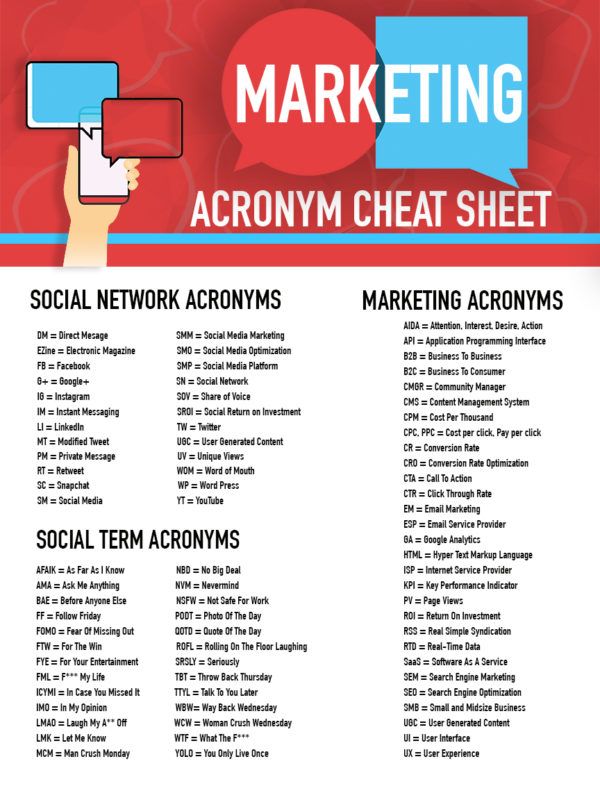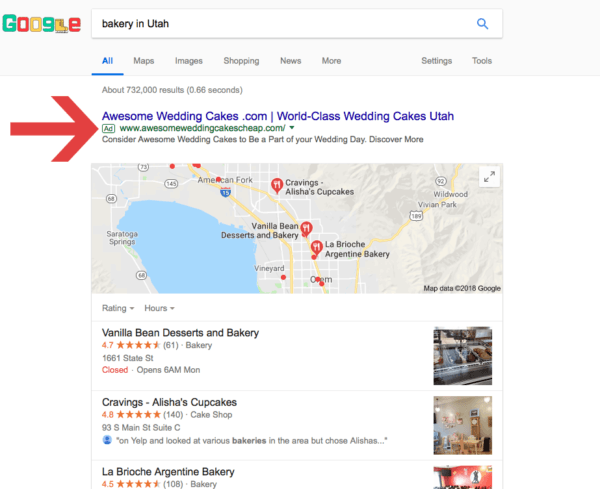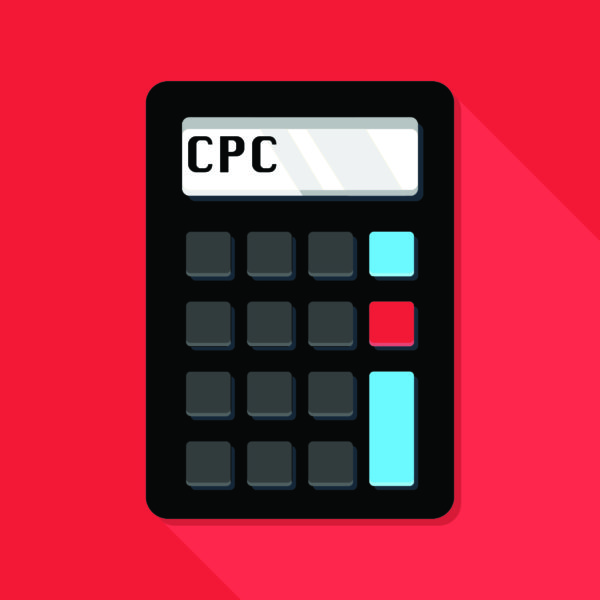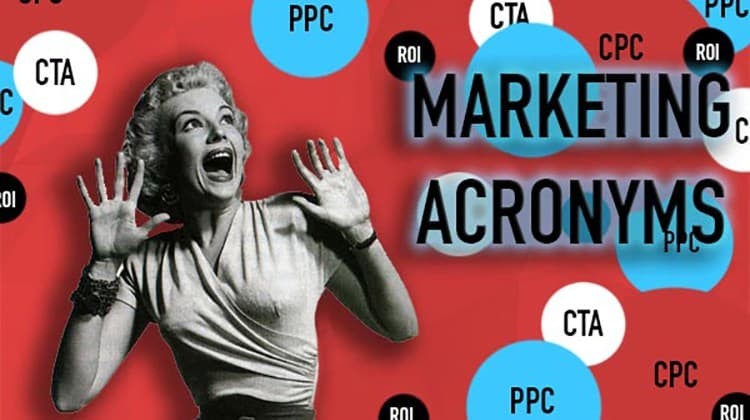Don’t Suffer From Marketing FOMO: Understanding PPC and CPC
by Cydney Hatch • February 26, 2018
CPC, SEM, ROI, CTA, PPC… all of these marketing acronyms make anyone new to paid search advertising want to “LOL” and “TTYL” because there are so many to get straight! It can be confusing as to which is what!
I mean, just look at all the marketing acronyms you have to juggle!

Share this Image On Your Site
But don’t you worry! Between the cheat sheet above and the rest of this article, you don’t have to suffer from marketing acronym “FOMO!”
In this article, I will explain two of the most mixed up marketing acronyms, PPC and CPC and the benefits they bring to your marketing strategy.
By the end of this article it will be “NBD” as you’ll be better informed in your marketing lingo!
PPC vs CPC
It can be easy for anyone new to paid advertising to confuse Cost Per Click (CPC) and Pay Per Click (PPC). They are mixed up all the time but lets be clear: one describes a type of advertising while the other refers to the cost of advertising using that advertising model.
Pay Per Click
Pay Per Click (PPC) refers to a type of online marketing. With PPC ads, every time your ad is clicked, you pay the search engine for that traffic.
Paid search advertising is one of the most popular forms of PPC. It allows businesses to bid for ad placement in a search engine’s sponsored ad positions when someone searches on a keyword that is related to the ad.
For example, Google AdWords paid search ads are a great example of PPC ads.
Google AdWords advertisements are shown to customers based off of their Google searches. So, if I search online for “bakery in Utah”, Google pulls up the top results but also featured a sponsored PPC ad at the top of those results:

As you can see, the companies that advertise on Google are given a top priority on searches and therefore will most likely have a higher conversion rate.
Paid search ads are great because they show ad content to people who are actively looking for products/services. So in my example, my Google search made finding a bakery easy! I will now most likely call or visit the location to order cupcakes—which is what “Awesome Wedding Cakes” is hoping for.
That is an “OMG” amazing conversion for the bakery and I can enjoy a “YOLO” moment eating a cupcake!
Everyone wins!

Now moving onto CPC and how your costs will be determined…
Cost Per Click
Cost Per Click (CPC) is the cost you are willing to pay for the traffic you will get from your Pay-Per-Click ad (PPC). CPC is a way to gauge your ad campaign success and your ultimate goal: money or return on investment (ROI).
So how is this cost calculated?

In simple terms, CPC is often determined by the following formula:
Advertising Cost / Number of Clicks = CPC
So, if you are going to pay $200 for an ad campaign that received 50 clicks, the CPC would be $4.00
($200/50 = $4.00).
The funny business is how Google’s ranking factors into the calculation. There are many factors that affect your CPC, including: Quality Score, the auctioning system and your business budget.
There are many factors in determining CPC, but if you are creating quality content and implementing PPC ads, you will come out on top as most PPC platforms reward quality content.
Why Cost Per Click Matters
“AFAIK” this is one of the better ways to explain CPC and how it can affect your business success: First and foremost, CPC is the cost that will determine the financial success of your advertising campaign. Second, it is an important piece of your true business success: return of investment (ROI), the money you actually get back.
Return of investment is seen in both cost and value because you are looking at how much you are paying for potential client actions but also the quality of those conversions. Make sure your ads are targeted, thoughtful and calculated so they are equally as “valuable” to the cost that you are paying.
“IMO” you should be up to date, “in the know”, and confident in your understanding of both CPC, PPC and other marketing acronyms!
“LMK” if you have an further questions don’t be scared to ask—”AMA!” If you feel Disruptive can help you with any of your PPC and online marketing needs contact me here.





